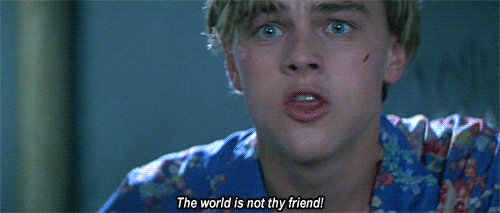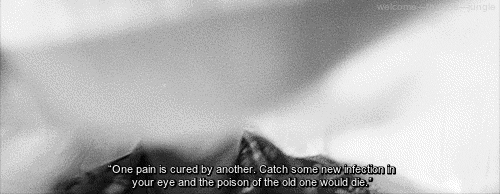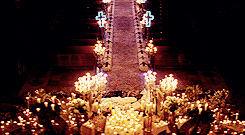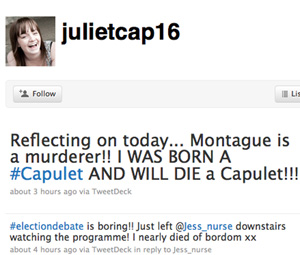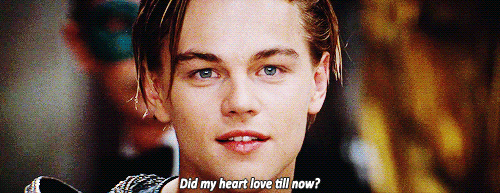One of the things I like about Shakespeare is the idea of us, human beings, as actors in real life. Reading about the topic in internet I found a monologue I have always loved from As you like it, a play we are not reading this semester. In the scene Jaques agrees with the Duke about men and women as actors on a stage, and divides life in seven ages, from the infant to last years of our existance that can be be seen as a whole play we perform.
All The World's A Stage
All the world's a stage,
And all the men and women merely players;
They have their exits and their entrances,
And one man in his time plays many parts,
His acts being seven ages. At first, the infant,
Mewling and puking in the nurse's arms.
Then the whining schoolboy, with his satchel
And shining morning face, creeping like snail
Unwillingly to school. And then the lover,
Sighing like furnace, with a woeful ballad
Made to his mistress' eyebrow. Then a soldier,
Full of strange oaths and bearded like the pard,
Jealous in honor, sudden and quick in quarrel,
Seeking the bubble reputation
Even in the cannon's mouth. And then the justice,
In fair round belly with good capon lined,
With eyes severe and beard of formal cut,
Full of wise saws and modern instances;
And so he plays his part. The sixth age shifts
Into the lean and slippered pantaloon,
With spectacles on nose and pouch on side;
His youthful hose, well saved, a world too wide
For his shrunk shank, and his big manly voice,
Turning again toward childish treble, pipes
And whistles in his sound. Last scene of all,
That ends this strange eventful history,
Is second childishness and mere oblivion,
Sans teeth, sans eyes, sans taste, sans everything.
Playing the role was extremely important in Elizabethan England, and so it is now. The topic inevitably makes me think about social networking and the masks we wear to fit with social standards. We play a role that end up transforming our identity. Probably, most of the times, we can’t tell that we are selecting information, transforming it to make it more appealing, or deliberately creating sceneries to show the world that we are living fruitfully. Personally, I have observed people that seem to be more worried of registering every moment and uploading it than actually enjoying it.
I have found a video called "What's on your mind?" that somehow portraits the ideas previously stated. I think it is a wonderful representation of how we “perform on stage”, how we adapt our experiences in order to show what is socially accepted and to hide the shameful truth.
Link: https://www.youtube.com/watch?v=QxVZYiJKl1Y
References
Shakespeare, William, and Demitra Papadinis. As You Like It [Electronic Resource] : A Frankly Annotated First Folio Edition / William Shakespeare ; Annotated And With An Introduction By Demitra Papadinis. n.p.: Jefferson, N.C. : McFarland, c2011., 2011. U of Georgia Catalog. Web. 10 Sept. 2014
I have found a video called "What's on your mind?" that somehow portraits the ideas previously stated. I think it is a wonderful representation of how we “perform on stage”, how we adapt our experiences in order to show what is socially accepted and to hide the shameful truth.
Link: https://www.youtube.com/watch?v=QxVZYiJKl1Y
References
Shakespeare, William, and Demitra Papadinis. As You Like It [Electronic Resource] : A Frankly Annotated First Folio Edition / William Shakespeare ; Annotated And With An Introduction By Demitra Papadinis. n.p.: Jefferson, N.C. : McFarland, c2011., 2011. U of Georgia Catalog. Web. 10 Sept. 2014


